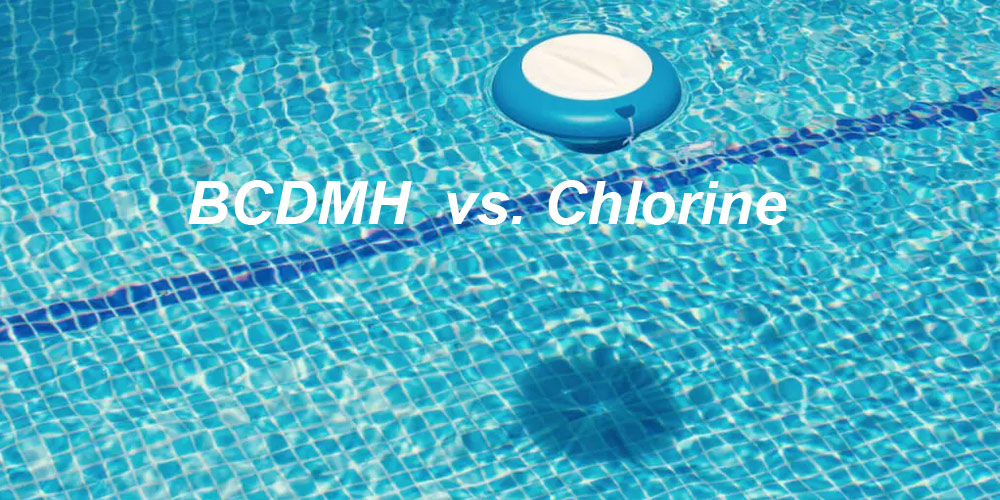When you think about how to maintain your pool, we recommend making pool chemicals a top priority. Specifically, disinfectants. BCDMH and chlorine disinfectants are two of the most popular choices. Both are widely used for pool disinfection, but each has its own characteristics, advantages, and specific applications. Knowing the differences can help you decide which disinfectant is better for your pool.
Chlorine disinfectant is a chemical disinfectant that releases hypochlorous acid when dissolved, thereby eliminating bacteria, viruses, and algae in the pool water. It comes in a variety of forms, including liquid, granules, tablets, and powders. Chlorine is efficient, fast, and cost-effective, making it the first choice for many pool owners.
BCDMH dissolves more slowly, and when dissolved in water, it first releases hypobromous acid, and then slowly releases hypochlorous acid. Hypochlorous acid re-oxidizes the reduction product of hypobromous acid, bromide ions, back to hypobromous acid, continuing to function as a bromine disinfectant.
Is it better to use BCDMH or chlorine disinfectant?
Both chemicals can effectively purify your water. It’s not about which is better than the other, but which one is better for your current situation.
You only need to use chlorine disinfectant or BCDMH, not both.
Key Differences Between BCDMH and Chlorine
Stability at Different Temperatures
Chlorine: Works well in standard temperature swimming pools, but becomes less effective as temperatures rise. This makes it less suitable for spas and hot tubs.
BCDMH: Retains its effectiveness in warmer water, making it a great choice for hot tubs, spas, and heated indoor pools.
Odor and Irritation
Chlorine: Known for its strong odor, which many people associate with swimming pools. It can also irritate the eyes, skin, and respiratory system, especially in higher concentrations.
BCDMH: Produces a milder odor that is less likely to cause irritation, making it more comfortable for swimmers who are sensitive to chlorine.
Cost
Chlorine: Costs less than .BCDMH
BCDMH: Tends to be more expensive, which may make it less attractive to large pools or budget-conscious pool owners.
pH
Chlorine: Is sensitive to pH changes, requiring frequent monitoring and adjustments to keep the water balanced (7.2-7.8).
BCDMH: Less sensitive to pH changes, making water chemistry easier to manage. (7.0-8.5)
Stability:
Chlorine disinfectant: can be stabilized by cyanuric acid, and can be used safely even outdoors. No need to worry about chlorine loss.
BCDMH cannot be stabilized by cyanuric acid and will lose quickly if exposed to sunlight.
Selection Tips
Chlorine is an ideal choice for:
Outdoor pools: Chlorine is effective in killing bacteria and algae, is affordable, and is suitable for large outdoor pools that need frequent disinfection.
Budget-conscious owners: Chlorine’s low cost and easy availability make it an affordable choice for most pool owners.
Highly used pools: Its fast-acting properties are very beneficial for pools with a large number of swimmers and need to be disinfected quickly.
When to use bromine
Hot tubs and spas: Its stability at higher temperatures ensures effective disinfection even in heated water.
Indoor pools: Bromine has less odor and is effective in lower sunlight exposure, making it an ideal choice for indoor use.
Sensitive swimmers: Bromine is a gentler alternative for those who are easily irritated or have allergic reactions.
The choice between bromine and chlorine depends on the specific needs of your pool, your budget, and the preferences of your swimmers. Consulting a pool professional can help you determine the best option for your pool.
Post time: Jan-31-2025

